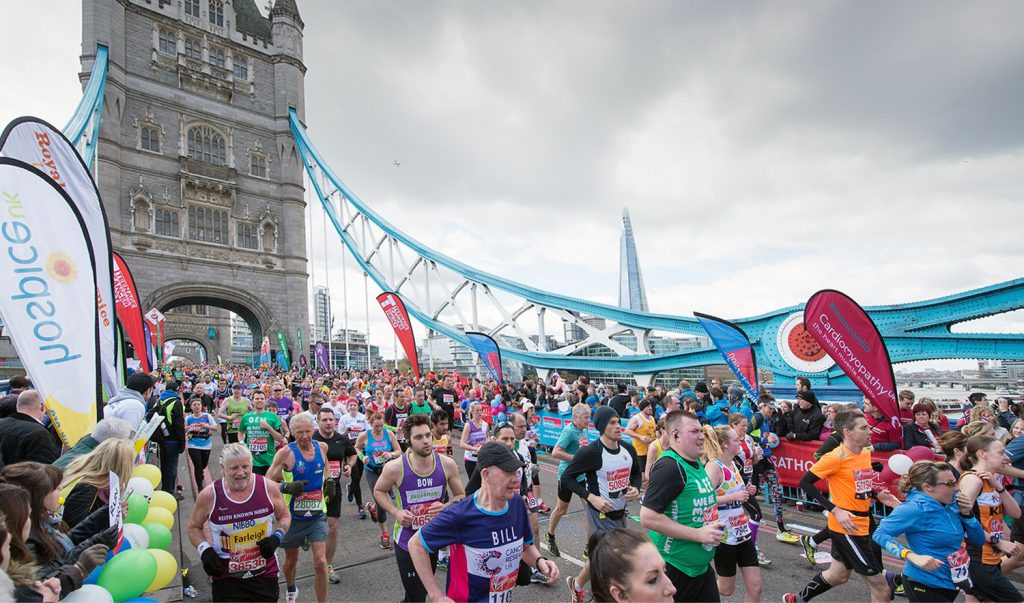The London Marathon is always one of my favourite events of the year. The sheer scale of human effort is always uplifting, even to the most cynical.

What’s not to like? 40,000 people putting themselves on the line, many for charity. The most enthusiastic marathon crowd in the world. All set against the backdrop of one of the world’s finest cities.
What happens when it’s all over though? Will the pieces go back together for our brave competitors?
Maybe, maybe not.
Running 26 miles is beyond the capacity of most people’s muscular system. Training appropriately will only reduce the damage on the day, not prevent it.
Fortunately there is enough variability in the muscular system to enable normal function once the immediate effects have worn off. You should feel your normal walking gait resume within a few days.
If it doesn’t think about this. Muscles taken beyond their capacity will stop contracting. You may feel this on the course as your running style begins to alter during the event. You will certainly be running very differently on The Mall compared to when you started on Blackheath!
Muscles that have stopped contracting during the event may respond to low load demands such as walking once they have recovered. They may not however.
I have treated individuals who have traced the beginnings of their injury problems back to extreme endurance events such as marathons.
Losing the contribution of certain muscles due to this effect is not catastrophic in the short term, but it does place more stress on other muscles as your central nervous system compensates around the weakness. This leaves you vulnerable to future injury and reduces running efficiency.
If you have tightness around a joint, or muscle soreness that doesn’t seem to be resolving more than a week after the event, get yourself checked by a Muscle Activation Techniques Specialist.
Once the muscles that aren’t contracting have been found and treated, you’ll be back to your best and thinking about doing it all again. Or maybe not!
Best of luck!